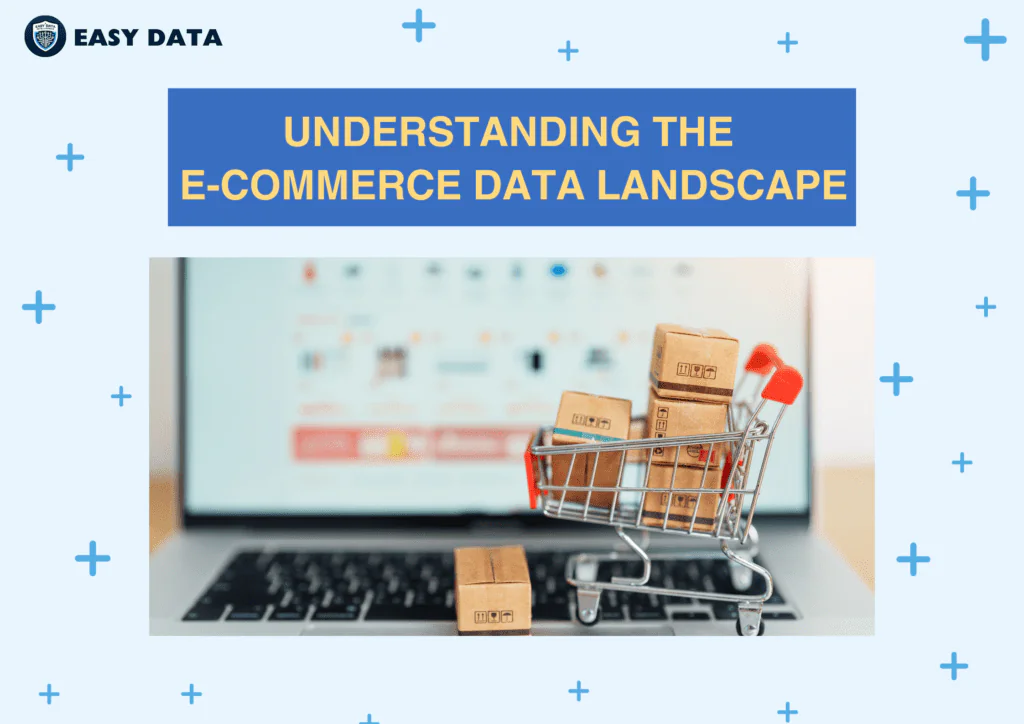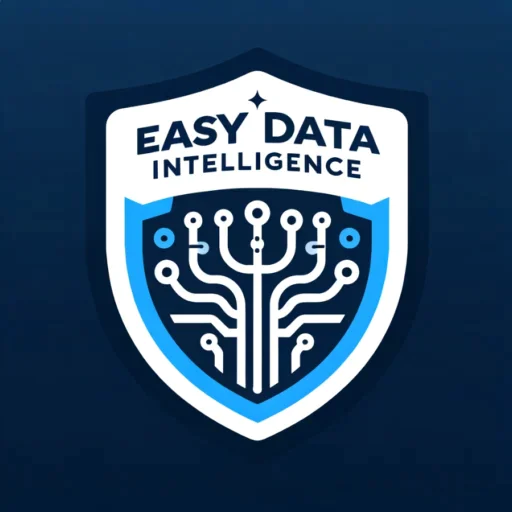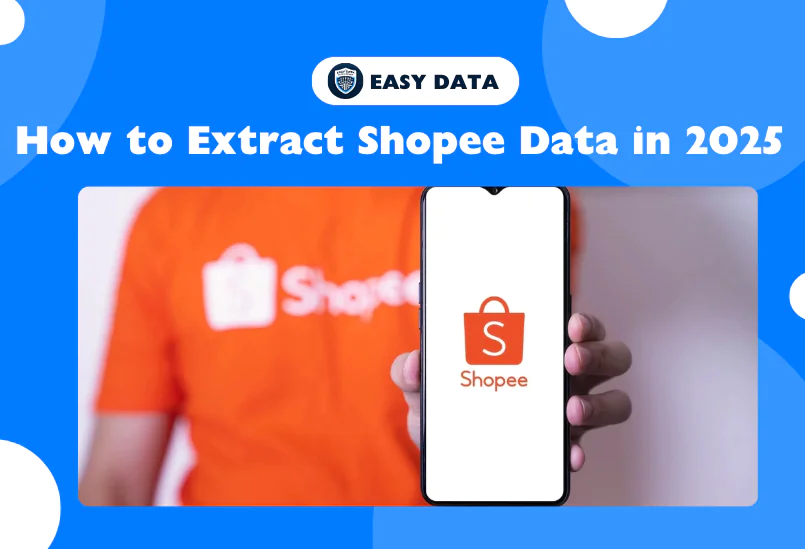In today’s hypercompetitive e-commerce ecosystem, mastering data-driven decision-making isn’t just an advantage – it’s a necessity for survival and growth. Shopee, Southeast Asia’s dominant online marketplace, represents a goldmine of market intelligence waiting to be tapped. This comprehensive guide will walk you through implementing a sophisticated Shopee web scraping strategy to transform raw data into actionable business insights.
- Understanding the E-commerce Data Landscape
- Technical Implementation Guide
- 1. Comprehensive Scraper Class Implementation
- 2. Advanced Data Extraction Methods
- 1. Data Cleaning and Transformation
- 2. Advanced Caching System
- Advanced Features and Optimization Techniques
- Data Analysis and Visualization
- Legal and Ethical Considerations
- Future Trends and Innovations
- Conclusion
Understanding the E-commerce Data Landscape

Web scraping technology has evolved significantly, enabling businesses to extract and analyze vast amounts of data from e-commerce platforms. At Easy Data, we’ve developed cutting-edge solutions to help businesses navigate this complex landscape effectively.
The Strategic Value of Shopee Data
Modern businesses leverage Shopee data extraction for multiple strategic purposes:
- Dynamic Price Optimization
- Real-time competitor price monitoring
- Automated pricing adjustments
- Historical price trend analysis
- Seasonal pricing strategy development
- Comprehensive Market Intelligence
- Consumer behavior pattern analysis
- Demand forecasting
- Market saturation assessment
- Regional market differences
- Advanced Product Portfolio Management
- Product performance tracking
- Category trend analysis
- New product opportunity identification
- Inventory optimization
- Competitive Intelligence
- Competitor product range analysis
- Promotional strategy tracking
- Market share assessment
- Brand positioning analysis
Technical Implementation Guide
Setting Up Your Development Environment
First, establish a robust development environment with all necessary dependencies:
Copied!# Core dependencies installation pip install selenium # Browser automation pip install beautifulsoup4 # HTML parsing pip install pandas # Data manipulation pip install requests # HTTP requests pip install aiohttp # Async requests pip install proxyscrape # Proxy management pip install pymongo # Database operations pip install redis # Caching pip install loguru # Logging
Advanced Scraping Architecture
1. Comprehensive Scraper Class Implementation
Copied!from selenium import webdriver from selenium.webdriver.chrome.options import Options from selenium.webdriver.common.by import By from selenium.webdriver.support.ui import WebDriverWait from selenium.webdriver.support import expected_conditions as EC from bs4 import BeautifulSoup import pandas as pd import asyncio import aiohttp import random import time from loguru import logger from typing import Dict, List, Optional class ShopeeScraperPro: def __init__(self, config: Dict): self.config = config self.setup_browser_options() self.setup_logging() self.initialize_database() self.setup_cache() def setup_browser_options(self): self.chrome_options = Options() if self.config.get('headless', True): self.chrome_options.add_argument('--headless') self.chrome_options.add_argument('--no-sandbox') self.chrome_options.add_argument('--disable-dev-shm-usage') self.chrome_options.add_argument('--disable-gpu') self.chrome_options.add_experimental_option('excludeSwitches', ['enable-automation']) def setup_logging(self): logger.add( "scraper.log", rotation="500 MB", retention="10 days", level="INFO" )
2. Advanced Data Extraction Methods
Copied!class DataExtractor: def __init__(self, soup: BeautifulSoup): self.soup = soup def extract_product_details(self) -> Dict: try: return { 'title': self._extract_title(), 'price': self._extract_price(), 'variations': self._extract_variations(), 'ratings': self._extract_ratings(), 'reviews': self._extract_reviews(), 'seller': self._extract_seller_info(), 'specifications': self._extract_specifications(), 'categories': self._extract_categories(), 'timestamp': time.time() } except Exception as e: logger.error(f"Error extracting product details: {str(e)}") return None def _extract_variations(self) -> List[Dict]: variations = [] variation_elements = self.soup.find_all('div', class_='variation') for element in variation_elements: variations.append({ 'name': element.get('data-name'), 'price': element.get('data-price'), 'stock': element.get('data-stock') }) return variations
Visit our web scraping services page to learn more about our professional scraping solutions.
Advanced Data Processing Pipeline
1. Data Cleaning and Transformation
Copied!class DataProcessor: def __init__(self): self.cleaning_rules = self._load_cleaning_rules() async def process_product_data(self, raw_data: Dict) -> Dict: cleaned_data = await self._clean_data(raw_data) transformed_data = await self._transform_data(cleaned_data) validated_data = await self._validate_data(transformed_data) enriched_data = await self._enrich_data(validated_data) return enriched_data async def _clean_data(self, data: Dict) -> Dict: for field, rules in self.cleaning_rules.items(): if field in data: for rule in rules: data[field] = await self._apply_cleaning_rule(data[field], rule) return data
2. Advanced Caching System
Copied!from redis import Redis from typing import Any class CacheManager: def __init__(self, host='localhost', port=6379): self.redis_client = Redis(host=host, port=port) self.default_expiry = 3600 # 1 hour async def get_cached_data(self, key: str) -> Optional[Any]: try: cached_value = self.redis_client.get(key) if cached_value: return self._deserialize(cached_value) return None except Exception as e: logger.error(f"Cache retrieval error: {str(e)}") return None
Advanced Features and Optimization Techniques
1. Intelligent Rate Limiting
Copied!class AdaptiveRateLimiter: def __init__(self): self.base_delay = 2 self.max_delay = 30 self.success_count = 0 self.failure_count = 0 async def wait(self): current_delay = self._calculate_delay() await asyncio.sleep(current_delay) def _calculate_delay(self) -> float: if self.failure_count > 0: return min(self.base_delay * (2 ** self.failure_count), self.max_delay) return max(self.base_delay * (0.8 ** self.success_count), 1)
2. Proxy Management System
Copied!class ProxyManager: def __init__(self, proxy_list: List[str]): self.proxies = proxy_list self.proxy_stats = Array self.initialize_stats() def initialize_stats(self): for proxy in self.proxies: self.proxy_stats[proxy] = { 'success_count': 0, 'failure_count': 0, 'average_response_time': 0, 'last_used': 0 }
For more information about our proxy management solutions, visit our proxy services page.
Data Analysis and Visualization
1. Creating Interactive Dashboards
Copied!import plotly.express as px import plotly.graph_objects as go class DataVisualizer: def __init__(self, data: pd.DataFrame): self.data = data def create_price_trend_chart(self): fig = px.line( self.data, x='timestamp', y='price', color='category', title='Price Trends by Category' ) return fig
2. Statistical Analysis
Copied!from scipy import stats import numpy as np class MarketAnalyzer: def __init__(self, data: pd.DataFrame): self.data = data def calculate_market_metrics(self) -> Dict: return { 'price_distribution': self._analyze_price_distribution(), 'category_performance': self._analyze_category_performance(), 'competitor_analysis': self._analyze_competitors() }
Legal and Ethical Considerations
Understanding Legal Boundaries
When implementing web scraping, consider these legal aspects:
- Review Shopee’s Terms of Service
- Comply with data protection regulations:
- GDPR compliance for European markets
- PDPA compliance for Southeast Asian markets
- CCPA compliance for California markets
Data Protection and Privacy
Implement robust data protection measures:
Copied!from cryptography.fernet import Fernet class DataProtector: def __init__(self): self.key = Fernet.generate_key() self.cipher_suite = Fernet(self.key) def encrypt_sensitive_data(self, data: Dict) -> Dict: encrypted_data = data.copy() for field in self.sensitive_fields: if field in encrypted_data: encrypted_data[field] = self.cipher_suite.encrypt( str(encrypted_data[field]).encode() ) return encrypted_data
Future Trends and Innovations

1. AI-Powered Scraping
Copied!from tensorflow import keras class AIScrapingEnhancer: def __init__(self): self.model = self._load_model() def predict_best_scraping_time(self, historical_data: pd.DataFrame) -> str: features = self._extract_features(historical_data) prediction = self.model.predict(features) return self._interpret_prediction(prediction)
2. Blockchain Integration
Copied!from web3 import Web3 class BlockchainDataVerifier: def __init__(self): self.w3 = Web3(Web3.HTTPProvider('http://localhost:8545')) self.contract = self._load_smart_contract() async def verify_data_integrity(self, data_hash: str) -> bool: return await self.contract.functions.verifyHash(data_hash).call()
Conclusion
Implementing a sophisticated Shopee web scraping system requires careful planning, robust technical implementation, and continuous optimization. By following this comprehensive guide and leveraging the right tools and techniques, you can build a powerful data extraction system that provides valuable insights for your business.
For professional web scraping solutions and expert consultation, visit EasyData’s home page. Our team of experts can help you implement custom scraping solutions tailored to your business needs.
Remember to regularly update your scraping infrastructure and stay informed about the latest developments in web scraping technology. With proper implementation and maintenance, web scraping can become a valuable asset in your business intelligence toolkit.
Start implementing these advanced techniques today to transform your business with data-driven insights from Shopee’s marketplace.


Leave a Reply